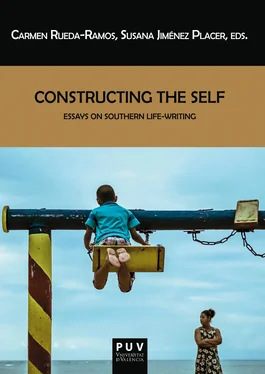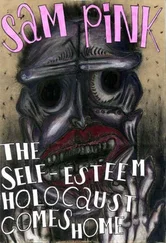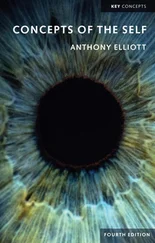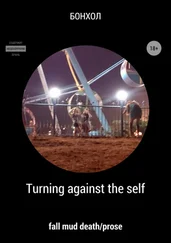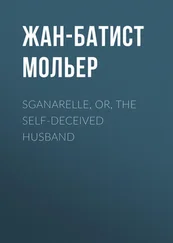CONSTRUCTING THE SELF:
ESSAYS ON SOUTHERN LIFE-WRITING
Biblioteca Javier Coy d’estudis nord-americans
http://puv.uv.es/bibliotecajaviercoydestudisnordamericans.html http://bibliotecajaviercoy.com
Directora
Carme Manuel
CONSTRUCTING THE SELF:
ESSAYS ON SOUTHERN LIFE-WRITING
Carmen Rueda-Ramos and Susana Jiménez Placer, eds.
Biblioteca Javier Coy d’estudis nord-americans
Universitat de València
Carmen Rueda-Ramos and Susana Jiménez Placer, eds. Constructing the Self: Essays on Southern Life-Writing
La preparación y publicación de este libro han sido posibles gracias a la financiación del Ministerio de Economía y Competitividad (MEC) (proyecto FFI2013-44747-P)
1ª edición de 2017
Reservados todos los derechos
Prohibida su reproducción total o parcial
ISBN: 978-84-9134-248-9
Ilustración de la cubierta: Jorge Orrico
Diseño de la cubierta: Celso Hernández de la Figuera
Publicacions de la Universitat de València
http://puv.uv.es
publicacions@uv.es
Contents
INTRODUCTION The Enduring Impulse to Tell about the Self and the South Carmen Rueda-Ramos and Susana Jiménez Placer
PART 1 SUBVERSIVE (RE)CREATIONS OF THE SELF—PAST AND PRESENT
‘My Story Is Better Than Yours’: The Changing Politics of and Motives for Composing Southern African American Life Narratives Trudier Harris
Working a Lever: Booker T. Washington’s Autobiographies as Tools for Social Change Robert H. Brinkmeyer, Jr
PART 2 THE LEGACY OF RACE:RECONCILING SELVES
‘I Knew Then Who I Was’: Memory, Narrative, and Sense of Self in Autobiographies of the Jim Crow South Jennifer Ritterhouse
Daily Encounters: The Coming of Age of Melton A. McLaurin Elizabeth Hayes Turner
Life Writing in Poetry and Prose: Natasha Tretheway’s Personal and National Revelations Pearl McHaney
Southern Autobiography Around the Table of Brotherhood: A Dream Deferred, a Dream Deceased, a Dream Destroyed, a Dream Dismissed? Ineke Bockting
PART 3 AUTHORS,NARRATORS AND FICTIONALIZED SELVES
Memoirs’ Characters: Writer, Narrator, Protagonist Peggy Whitman Prenshaw
Faulkner and Autobiography in Fiction Thomas L. McHaney
‘A Someone Somewhere’: Locating Richard Ford’s Southern Self in his Fiction and Non-Fiction Gérald Préher
Self-Fashioning and Philippe Labro’s ‘Southern Memoir’ The Foreign Student Nahem Yousaf
PART 4 TRANSGRESSORS AND PERFORMERS OF SELF
Appalachian Women’s Autobiographies from the Margins: Crossing the Boundaries of the Genre Carmen Rueda-Ramos
‘Pariahs for Flattering Reasons’: Confessions of Failed Southern Ladies on the Black Help Susana Jiménez Placer
‘A Tarnished Lady?’: Tallulah Bankhead’s Southern Performance in Hollywood Beata Zawadka
Grief and Humor: Appalachian Writers Using Autobiography to Find a Way Home Sandra L. Ballard
PART 5 SITES FOR SELF-EXPLORATION:TRAVEL AND ILLNESS NARRATIVES
The Self Elsewhere: Alice Walker’s Identity in the Wider World Jesús Varela-Zapata
Reflecting on the Region, Revisioning the Self: John Gould Fletcher’s Song of His Life and Its Transatlantic Context Waldemar Zacharasiewicz
The Physicality of Reminiscence: The Stimuli of the South in Bobbie Ann Mason’s Clear Springs: A Memoir Candela Delgado Marín
Coming to the End: The Perception of Mortality in the Autobiographical Writings of Reynolds Price and Tim McLaurin Marcel Arbeit
Contributors
To Constante González Groba,passionate fellow southernist,great teacher, mentor and dear friend
Acknowledgments
Susana Jiménez Placer feels especially indebted to the members of the Southern Studies Forum for their tireless contribution to the dissemination of southern studies and their readiness to share their insightful ideas in usually academic, but always friendly, occasions. She would also like to express her gratitude to the Competitive Reference Research Group “Discourse and Identity” (GRC2015/002 GI-1924, Xunta de Galicia ) at the University of Santiago de Compostela, and to her colleagues in the Department of English and German Philology for their inexhaustible encouragement and disposition to help.
Carmen Rueda-Ramos is deeply grateful to her colleagues at the University of Santiago de Compostela, where she has always been welcomed and her ideas have found an appreciative response. Her heartfelt appreciation goes to Appalachian State University, Boone, North Carolina, particularly her friends Sandy Ballard and Katherine Ledford, for granting her access to the university’s library and the special collections, as well as for all the great moments in the mountains. An important part of the research for this project on life-writing was carried out at ASU. Special thanks are also extended to Catherine Dexter for her careful reading of some sections of the manuscript.
Finally, we would like to thank the Ministerio de Economía y Competitividad (MEC) for funding (FFI2013-44747-P) this study.
Introduction
The Enduring Impulse to Tell about the Self and the South
Carmen Rueda-Ramos and Susana Jiménez Placer
Sincerely and earnestly hoping that this little book may do something toward throwing light on the American slave system, and hastening the glad day of deliverance to the millions of my brethren in bonds—faithfully relying upon the power of truth, love, and justice, for success in my humble efforts—and solemnly pledging my self anew to the sacred cause,—I subscribe myself, FREDERICK DOUGLASS.
—Frederick Douglass, Narrative of the Life of Frederick Douglass, An American Slave. Written by Himself (1845)
I think I have always known about my memory: I know when it is to be trusted and when some dream or fantasy entered on the life, and the dream, the need of dream, led to distortion of what happened.
—Lillian Hellman, Pentimento (1973)
In The Memoir and the Memoirist: Reading and Writing Personal Narrative (2007), American critic and memoirist Thomas Larson makes the following claim: “Despite the occasional female author, autobiography is a male genre” (12). After the initial shock, one is almost tempted to add—not without a heavy dose of irony, of course—the adjective white to his statement. In his brief overview of the history of the genre, citing Henry Adams’s Education of Henry Adams , Benjamin Franklin’s Autobiography , and Henry David Thoreau’s Walden as classics that prove his point, Larson wipes out southern authors’ rich contribution to American autobiography by saying that it would be the quintessential American genre “were the form widely practiced. But it hasn’t been” (11). One wonders how could Larson possibly overlook and dismiss so easily the autobiographies and memoirs penned by southern African Americans and women, two historically oppressed groups who found precisely in the different forms of life-writing the means to represent themselves. Larson ignores the autobiographical impulse in the South that has produced countless letters, diaries, slave narratives, autobiographies and memoirs written by black and white southerners in general, and by southern women in particular. Worst of all, he disregards the right of authors like Frederick Douglass to form part of the select group of canonical autobiographers 1 in the US, let alone acknowledge the literary relevance of writers like Lillian Hellman, who happened to be more than an “occasional female author” of memoirs. Wondering, therefore, if such an autobiographical impulse exists among southerners is not exactly the right question to ask, for the urge and the tradition to tell personal narratives certainly have been there for a long time.
Читать дальше
